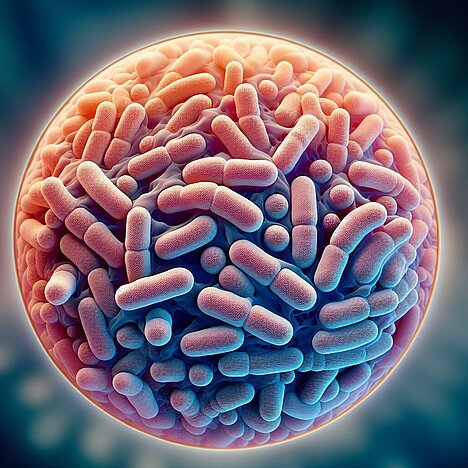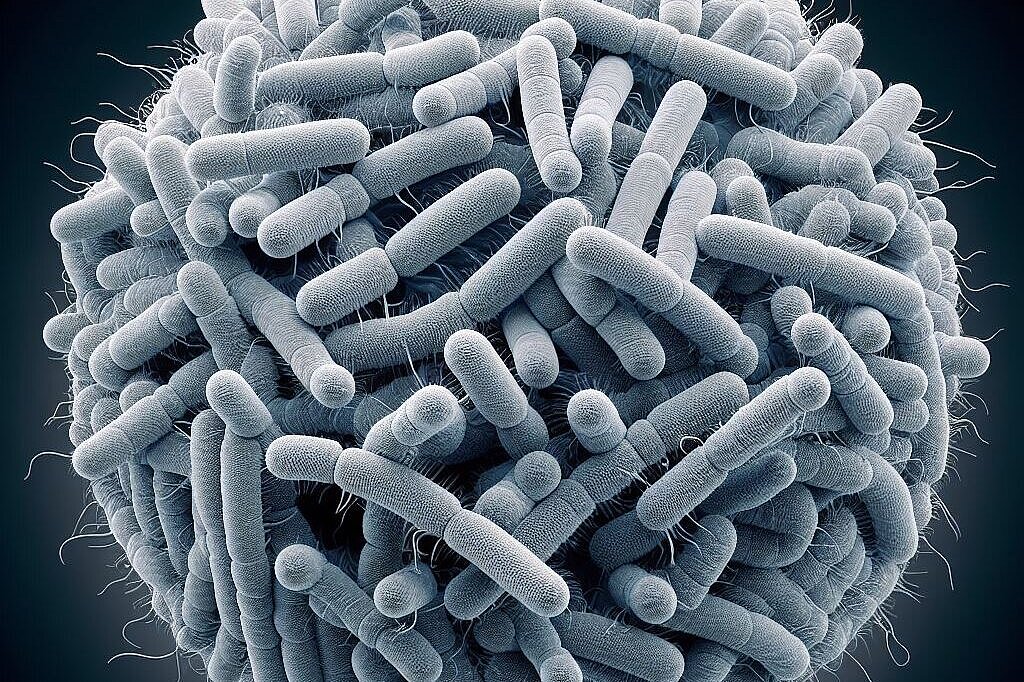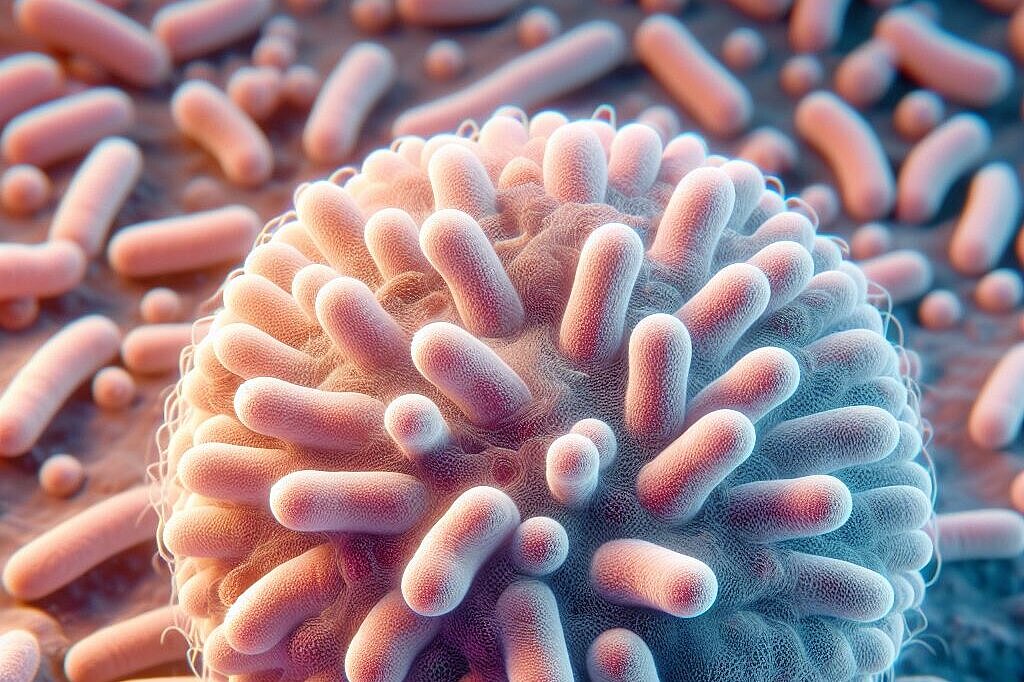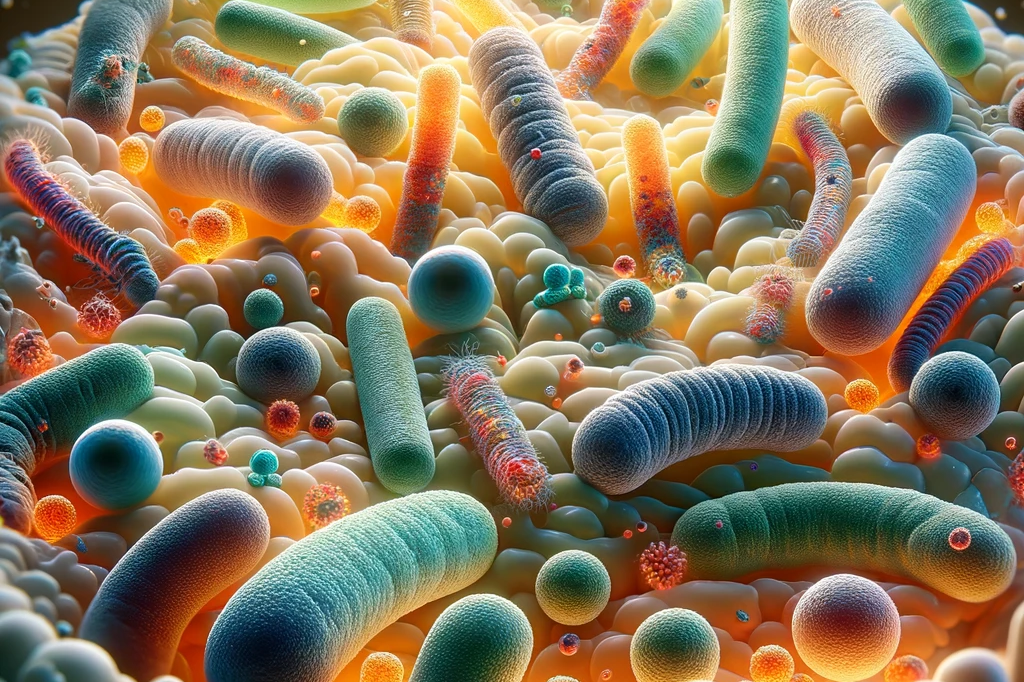Bifidobacterium animalis

What is Bifidobacterium animalis?
Bifidobacterium animalis is a rod-shaped bacterium that belongs to the genus Bifidobacterium. This genus includes several species of bacteria that occur naturally in the intestines of mammals, birds and insects. Bifidobacterium animalis is one of the most common species in dogs and is often used in probiotic products for dogs.
Bifidobacterium animalis has the ability to produce lactic acid and short-chain fatty acids, which promote the growth of other beneficial bacteria and keep the intestinal environment acidic. This inhibits the growth of harmful bacteria and strengthens the intestinal barrier. Bifidobacterium animalis can also modulate the immune system and reduce inflammation in the gut.
How does Bifidobacterium animalis work in dogs?
Bifidobacterium animalis can have various positive effects in dogs, which can vary depending on the strain, dose and duration of use. Some of the possible effects are
- Improving stool quality: Some probiotic strains of Bifidobacterium animalis can improve stool quantity and consistency in dogs, especially those with diarrhea or soft stools.
- Reduction of inflammation: Bifidobacterium animalis can reduce inflammatory reactions in the intestines, thereby alleviating the symptoms of chronic inflammatory bowel disease (IBD). A study showed that the administration of a probiotic yoghurt containing Bifidobacterium animalis NCIMB 41199 led to an improvement in clinical parameters and quality of life in dogs with IBD.
- Strengthening the immune system: Bifidobacterium animalis can strengthen the immune system of dogs by stimulating the production of antibodies and immune cells and increasing the activity of natural killer cells. This can improve the defense against infections and reduce the risk of allergies.
What are the advantages and disadvantages of Bifidobacterium animalis for dogs?
Bifidobacterium animalis has many potential benefits for dogs, but also some potential disadvantages that you should be aware of. Here are some of them:
Benefits
- It can promote gut health and well-being in dogs by balancing gut flora, strengthening the intestinal barrier and reducing inflammation.
- It can support dogs' immune systems by improving resistance to infections and reducing the risk of allergies.
- It is available in various forms, such as tablets, powder or yogurt, which are easy to administer.
- It is generally well tolerated and has few side effects.
Disadvantages
- It cannot solve all intestinal problems and should not be considered a substitute for a proper diet or veterinary treatment.
- It may interact with other medications or supplements and interfere with their effects. Therefore, you should always consult your veterinarian before giving Bifidobacterium animalis to your dog.
- It can cause adverse reactions in some dogs, such as bloating, diarrhea or vomiting. These are usually temporary and mild, but can be severe in rare cases.
- It can lose its effectiveness if it is stored or administered incorrectly. You should therefore always follow the manufacturer's instructions and observe the expiry date.
Bifidobacterium animalis is a probiotic bacterium that can have many positive effects on the health and well-being of dogs. It can balance the intestinal flora, strengthen the intestinal barrier, reduce inflammation and support the immune system. It is available in various forms and has few side effects. However, it cannot solve all intestinal problems and should not be given without veterinary advice. It can also cause adverse reactions in some dogs or lose its effectiveness if stored or administered incorrectly. Therefore, you should always weigh up the pros and cons of Bifidobacterium animalis for your dog and follow the manufacturer's recommendations.
Properties 10
Are you looking for other ingredients with a specific property?
Just click on them to find more.
If you notice any signs of hypersensitivity or poisoning in your dog, you should see your vet immediately. We are not a substitute for a vet, but we try to be as accurate as possible. Every dog reacts differently and we recommend you get a second opinion or consult your vet if in doubt.
Stay healthy and take good care of your four-legged friend!😊
Similar to Bifidobacterium animalis
Lactobacillus acidophilus is a type of bacteria that produces lactic acid. This lactic acid lowers the pH value in the intestine and thus inhibits the growth of harmful bacteria that can cause...
Enterococcus faecium can help reduce digestive problems in dogs, such as diarrhea and constipation. It can help to restore the balance of intestinal flora and reduce inflammation in the gut, which...
Lactobacillus casei is a lactic acid bacterium that occurs naturally in the mouth, intestines and genital area of humans and animals. It is one of the most common bacterial strains contained in...
Saccharomyces boulardii is a yeast that occurs naturally in the intestines of humans and animals. It is one of the so-called good bacteria that ensure healthy digestion. Saccharomyces boulardii can...



